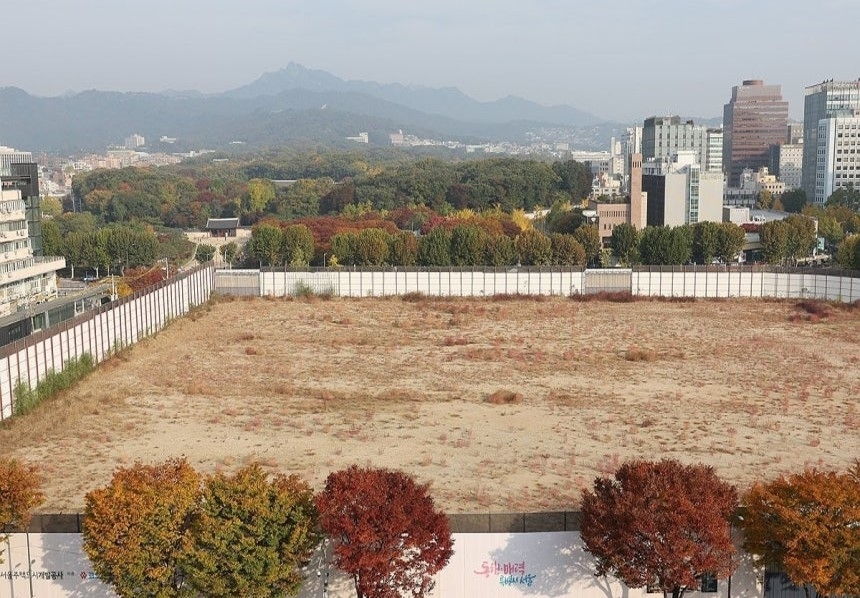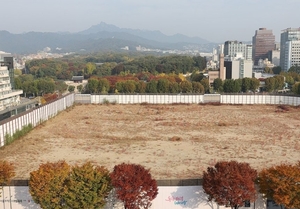 Sewoon District 4 area in front of Jongmyo Shrine (Yonhap)
Sewoon District 4 area in front of Jongmyo Shrine (Yonhap) The Korea Heritage Service on Thursday formally designated the 194,000-square-meter area surrounding Jongmyo Shrine as an official world heritage zone, a move expected to further intensify the political and administrative standoff over Seoul city’s plan to redevelop the nearby Sewoon District 4.
The designation — which covers 91 land parcels centered around the UNESCO-listed Jongmyo Shrine — was approved during a meeting of the KHS’ Cultural Heritage Committee at the National Palace Museum of Korea in Jongno, Seoul. The agency said it plans to complete all remaining administrative procedures by December.
Under the South Korean law, projects that may affect a designated heritage zone are subject to a special assessment, allowing the KHS to request expert evaluations or intervene in development plans.
“The designation legally defines the spatial boundaries subject to world heritage impact assessments,” the agency said. “We strongly urge the Seoul Metropolitan Government to conduct an impact assessment in accordance with the law.”
The designation comes roughly a year after the KHS issued a preliminary notice in October last year. At the time, the agency announced plans to designate World Heritage Zones for 11 UNESCO-listed sites, including Jongmyo, Changdeokgung Palace, Hwaseong Fortress, the Gyeongju Historic Areas and Jeju Volcanic Island and Lava Tubes.
The KHS’ decision adds new hurdles to Seoul Mayor Oh Se-hoon’s push to relax building-height restrictions and approve a high-rise commercial–residential complex in Sewoon District 4, located roughly 180 meters from Jongmyo. Under the city’s plan, the height limit would jump from 55 meters to 101 meters.
The redevelopment plan already sparked controversy after a recent Supreme Court ruling cleared the way for the city to proceed, prompting criticism from heritage experts and cultural organizations who warn the project could compromise the shrine’s authenticity and jeopardize its UNESCO status.
Oh has defended the project as a necessary step to revive a long-neglected part of Jongno District. But the KHS’ expanded authority over the area now places the city under increased scrutiny, raising questions about whether the high-rise proposal can move forward.
The dispute is quickly becoming a political battleground ahead of the May 2026 local elections. Members of the ruling Democratic Party of Korea eyeing the Seoul mayoral seat have seized on the redevelopment issue to criticize Oh’s governance.
mkjung@heraldcorp.com
